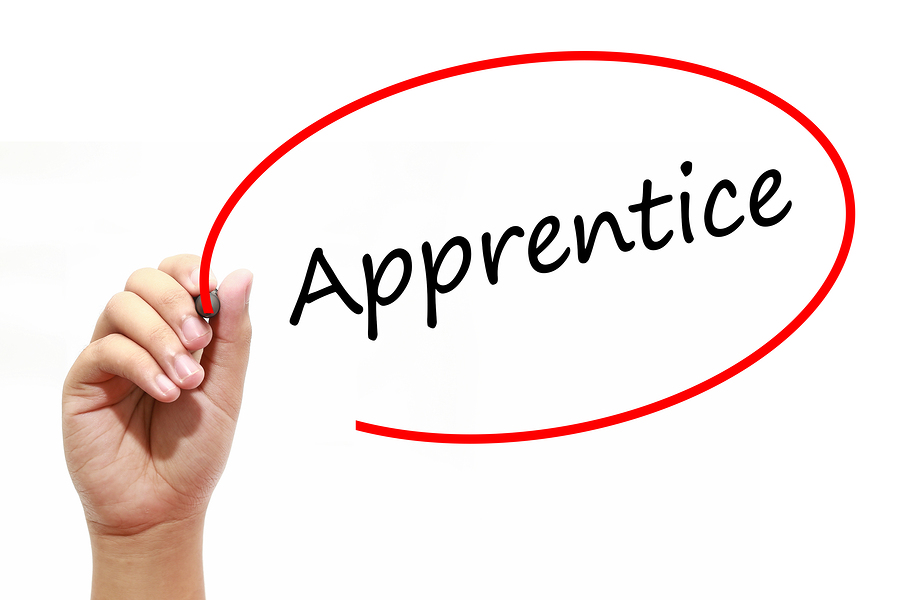Author Richard Carlson and his 1996 book Don’t Sweat the Small Stuff encouraged a generation to put priorities in order and prevent someone from missing the forest for the trees.
I am afraid many aspiring authors are doing just the opposite by not worrying about the big stuff either.
Everything we write in this agency blog does not carry the same level of importance to everyone, but very often, things which truly could be described as important to authors, critical to their future success and at the very least potential traps, resulting in wasted time if not avoided or understood, are treated with less importance than a discussion of the creative craft.
Craft is fun. Metadata is boring. But you could write a great book and torpedo it with bad metadata.
When we deal with craft issues, a lot of people enjoy reading and engaging. When we deal with professional industry issues, there is less engagement.
I hope this anecdotal observation isn’t an indication of readers avoiding bigger issues, because it is those bigger issues which, if avoided, will cost you time, money, and emotional energy.
If you write for entertainment or diversion only, then go ahead and have fun, ignore the big stuff. But if you seek to publish successfully, don’t ignore any of it.
Since agents look to represent those who desire a career in writing or at least are committed to it long-term, we view just about everything related to books as having an influence, for better or worse.
If you want to work in the medical field and don’t like computers or keeping meticulous records, and avoid information about medical insurance, you are ignoring the big stuff.
If you own a car and never check your tires, oil or brakes, you are ignoring really big stuff.
If you work in education and have no interest in the socio-political implications of everything from textbook selection to classroom management, good luck to you.
For authors, the point is this, make certain you are not so focused on the details of writing you ignore those issues which are really driving book sales in the twenty-first century.
Here’s a list of big issues affecting your life as an author, traditional or self-published: (Listed in alphabetic order to avoid an argument which is most important)
Amazon
Competition/Discoverability
Copyright
eBooks
Metadata/Key Words/Bisac codes
Pricing
Reading habits
Sales channels
You should know some basic information about each and know how changes in the book world might affect one or more of them and more important, how they are affecting the book world.
Whether you spend time learning about these or not, each item listed above has substantial implications for your writing career. It would make sense to know something about each.
Assignment – pick one of the above topics each week and spend fifteen minutes reading about it.
You don’t need to be a world-renowned expert on these things, but it might give you a better perspective when you know the truth about reading habits, competition in the book marketplace and copyright.
Yes, they are boring. But so is your car radiator, until the point you ignore it for so long you find yourself stalled on a deserted highway surrounded by a motorcycle gang fleeing the police and looking for a hostage.
(Anyone who wants to use the preceding in their book, go ahead. I didn’t copyright it.)



 You Have the Right to Write Rite. Right?
You Have the Right to Write Rite. Right?

Thank you for the challenge. I took you up on it and found a very helpful article on metadata. Here it is : https://dataedo.com/blog/what-is-metadata-examples
Great catch Lori. Thanks.
Not gonna lie… the hostage situation sounds less scary and less potentially painful than researching metadata. But I do understand your point. Learning writing craft to me is fun and interesting. Metadata, search engines, marketing strategies, not so much. But fifteen minutes a day… I can do that. And starting tomorrow, I will do that (just kidding… already noted it on my list of things to start doing today!).
One of the things keeping me from commenting on the technical stuff is my limited knowledge. I read this blog, in part, to educate myself about these things.
Thank you for the list. I’ll be checking out Lori’s link (thank you, Lori) when I’m home from my day job.
It’s similar with faith; C.S. Lewis likened the Christian whose faith is based solely on ecstatic, transcendental experience of God’s presence to splashing about in the shallows of the sea. Fun, but it won’t get you from Southampton to Le Havre.
For that you need a ship, and the ability to sail her…the long hours of reading Scripture and apologetics, the dry hours of prayer when prayers won’t come, the work as part of Christ’s body in a church that seems to be a full-hearted re-enactment of grammar school.
You can spend a lifetime playing in the waves; many do. But it means turning your back on the wider seas upon which God intended your soul to venture
Andrew, this is beautifully said. Your words have both encouraged and challenged me in my spiritual life. Thank you.
Judi, thank you so much. You’ve brightened and blessed my day.
I’m with Judi, apt comparisons and lovely imagery.
Thank you so much, Laura!
Thank you Dan and Lori. I didn’t know what ‘metadata’ was, and can’t bring myself to capitalize the word. Thanks for the enlightenment regarding all things “big stuff.”
Good ideas. Thank you. I have started reading about some of it, but I don’t know where to go next until I stumble across something new (and I have the chance to follow up). The whole thing is rather overwhelming for someone who only seriously started writing two years back. As if the draining task of editing isn’t enough…
Nonetheless, I’ll give it a go. Thank you for the list.
So where? Do I Google Google to find out about Google (but I prefer Bing)? Is Wikipedia a good source for study? I did try two words in Bing and learned at least a definition for eBooks and Metadata. Advise.
I’d suggest searching with a question…”How does Google affect book sales?”
How does pricing affect book sales?
How are book reading habits changing?
What is book metadata?
How many books are published every year? (competition)
Thanks for the practical search suggestions, Dan. I followed your lead and searched “How does metadata affect book sales?” and came up with this concise gem: http://www.ingramspark.com/blog/the-power-of-metadata-to-drive-book-discovery-and-sales
Such a practical post, Dan. When I google some of your terms, I’m amazed at the info out there.
Thank you!
This post is spot on, Dan. Anyone who is self-publishing has to know a lot about every topic, not just a little. Plus you have to continually monitor some of the topics to make sure you aren’t missing new information that will help sales. As much as we might love it being all about the beauty of our writing, this is a business.
But I’ve seen so much harping on how essential it is to have a large platform, which is a major component of discoverability, that people might pour so much time and effort into platform building that they never refine and polish their work to make it worth discovering.
Time is a zero-sum quantity, and every author probably struggles with how to apportion it between business and creative effort. I’ve taken the approach of trying to do my absolute best on the writing, learn enough about the business to decide where to pour my discoverability efforts, and pray for God to get the books into the hands of the people who will be encouraged by what I’ve written so they end up glad they spent some of their time with me.
Trust you, Carol, to bring up balance between art and science and wisdom to prioritizatng our time. And your points strike true, Dan. I have to be deliberate about the things that don’t come easily. It is a matter of self control. Thus it falls into the spiritual realm.
Thanks for emphasizing this, Dan. Like Carol said, this is a business (or in my case, it’s going to be – when I can get the content written). I am reminded of the book “The E-Myth,” which describes three business personalities: the entrepreneur, manager, and technician. Technicians create, managers take care of administrative necessities, and entrepreneurs embrace and cast the broader vision for the creation. We, as writers, are primarily the technicians, but we must also learn to become good managers and entrepreneurs. If we don’t, our inspired works may end up touching only a handful of lives when thousands would benefit.
A bored author is a boring author. If you’re not interested in the metadata too, it’s possible that this type of writing isn’t right for you.
Ouch! That’s harsh. Some things you have to learn but that doesn’t mean you find them interesting. I know my car needs oil but I don’t find combustion engines interesting.
I’m an RN. I know a bit about most specialty areas but there’s too much to know. Frankly, I don’t find the arcane knowledge of complex EKG reading interesting. I know the basics. Do you know how many types and sub-types of arrhythmias there are? I don’t either. I can’t count that high. Hence, specialization and referrals.
Amazon criteria, metadata and all things technological are constantly changing. I learn what I can and “refer” to a specialist the things I can’t. Knowing what you don’t know can be a good thing.
Dan, I must be the wierd author who loves studying the boring details. 😉 Thanks for sharing this blog post. I was at Mount Hermon this past weekend and enjoyed discussing marketing and book proposals with my fellow writer friends, agents, and editors. What an ever-changing art…
*weird (yeah, how about that???)
Thank you for the list. You’re right, craft-only tunnel vision blocks the bigger picture of the industry.